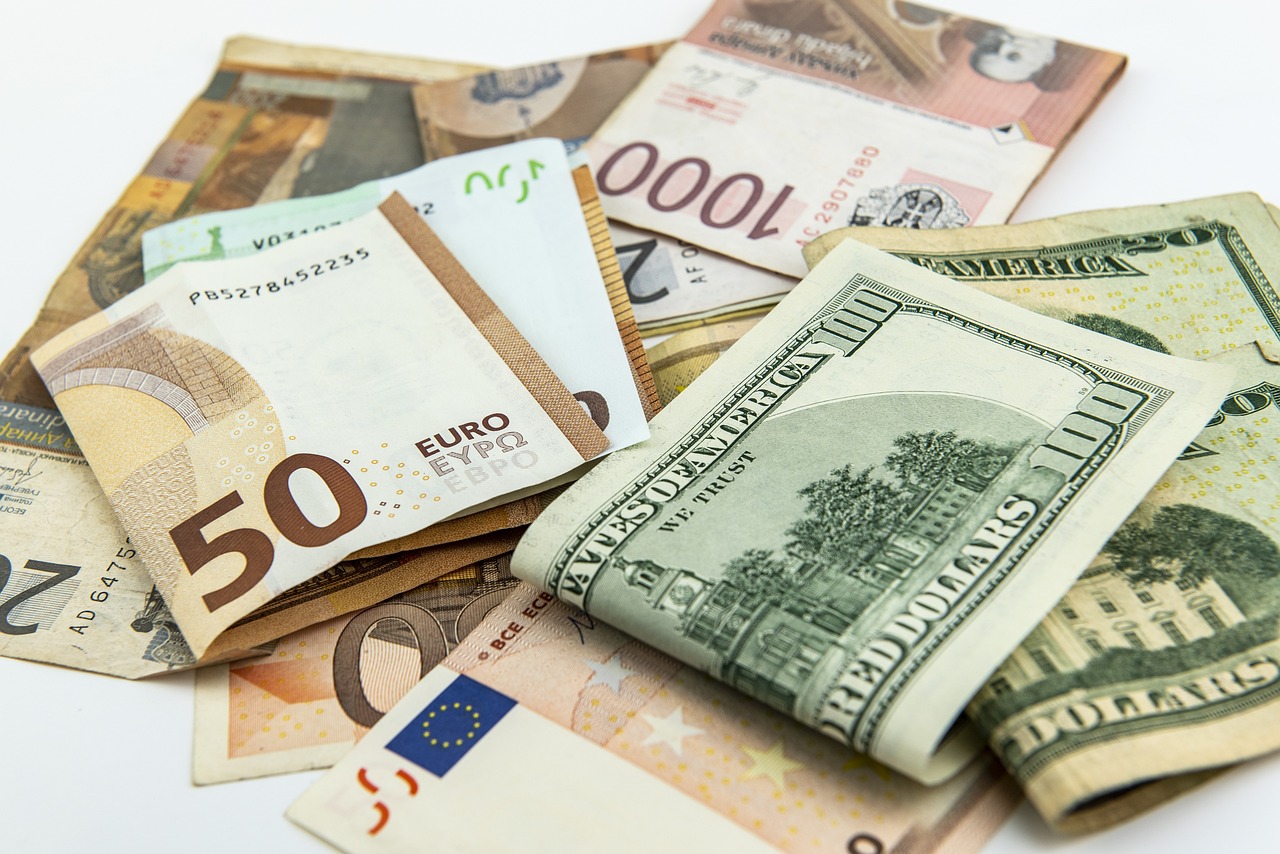Understanding the Yuan: Exchange Rates, Currency Pegs, and Global Impact on US Consumers and Travelers
GPT_Global - 2025-10-20 17:00:33.0 133
Why is the yuan sometimes pegged to a basket of currencies rather than just the US dollar?
The yuan, China's currency, is sometimes pegged to a basket of currencies rather than solely to the US dollar. This strategy allows for greater flexibility in managing the yuan’s value and helps stabilize China's economy against external shocks. Unlike a fixed peg to the US dollar, which can expose the currency to fluctuations based on one nation's economic conditions, a basket peg spreads the risk across multiple currencies.
For remittance businesses, understanding the nuances of currency pegs is crucial. Currency value fluctuations can impact the costs of sending and receiving money. By pegging the yuan to a basket of currencies, China reduces dependency on the US dollar, making remittance transactions less vulnerable to dollar volatility. This results in more predictable exchange rates for customers and businesses alike.
In the remittance industry, where cross-border payments are frequent, exchange rate stability is essential. With the yuan pegged to a basket of currencies, businesses can better anticipate costs and provide competitive pricing, ensuring customers receive more accurate remittance transfers at favorable rates.

What impact does a falling yuan have on US consumers who import Chinese goods?
The yuan's fluctuating value can significantly impact US consumers who import Chinese goods. When the yuan falls against the US dollar, it makes Chinese goods cheaper for American buyers. This is because US dollars can purchase more yuan, reducing the cost of imported products. Consumers may see lower prices on goods such as electronics, clothing, and toys, which are commonly sourced from China.
For businesses involved in remittance services, a weaker yuan could also have implications. Chinese families and workers living abroad may receive more in USD when sending money back home, benefiting from favorable exchange rates. This could boost the remittance industry as individuals are able to send more money back to China with less cost.
Overall, a falling yuan presents an opportunity for US consumers to save on imports while also impacting the dynamics of international money transfers. As the yuan continues to fluctuate, both businesses and consumers in the remittance space must stay informed on exchange rate trends to maximize their financial benefits.
How do Chinese banks set the exchange rate for 1 dollar to yuan transactions?
Understanding the exchange rate between the U.S. dollar and the Chinese yuan is crucial for businesses in the remittance industry. The value of 1 dollar to yuan transactions is determined by a combination of market forces and government policies. Chinese banks play a key role in setting these rates.
Unlike many countries that allow their currency value to float freely in the market, China maintains a more controlled exchange rate system. The People’s Bank of China (PBOC) sets a daily reference rate based on market trends, but it allows the yuan to fluctuate within a narrow band. This system helps stabilize the currency while providing flexibility for international trade and remittance services.
For remittance businesses, understanding how Chinese banks set exchange rates is vital. Rates can vary slightly depending on the bank and location, but they are generally influenced by the PBOC’s guidance. Keeping an eye on these fluctuations helps businesses offer better rates to their customers and remain competitive in the market.
Ultimately, remittance businesses must stay updated on these exchange rate dynamics to ensure accurate and timely transfers for their clients. This can also help minimize the impact of currency fluctuations on their transactions.
How does the Chinese yuan compare to other major currencies like the euro or yen?
The Chinese yuan (CNY) plays a crucial role in the global financial landscape, often compared to other major currencies like the euro (EUR) and Japanese yen (JPY). As China's economy continues to grow, the yuan's influence is increasing, making it an important consideration for businesses involved in remittances.
Unlike the euro and yen, which are freely traded in global markets, the Chinese yuan is subject to capital controls and government influence. This means that exchange rates for the yuan are often less volatile, but businesses must be aware of the regulations and policies affecting its value when sending money to China.
For remittance companies, understanding the dynamics between the yuan, euro, and yen is key to offering competitive rates. With its fixed exchange rate mechanism, the yuan offers stability, but fluctuating values of the euro and yen can result in higher transaction costs for individuals transferring money across borders.
By staying informed on how the yuan compares to other major currencies, remittance services can provide better rates and smoother transactions for their customers. As the yuan continues to grow in international trade, it will likely become even more integral to remittance businesses worldwide.
What steps can travelers take to get the best exchange rate from US dollars to yuan?
Travelers exchanging US dollars (USD) to Chinese yuan (CNY) can take several steps to ensure they get the best exchange rate. First, it's crucial to compare rates at various sources, including banks, currency exchange services, and even airports. Rates can vary significantly, so shopping around can lead to better deals.
Another way to secure the best exchange rate is to avoid exchanging money at airports or hotels, where rates are often less favorable. Instead, consider using online platforms or local exchange offices in cities, as they tend to offer better rates. Many remittance services also provide competitive exchange rates with low fees, making them an excellent option for travelers.
Additionally, using a credit card or a debit card with no foreign transaction fees can save you money. Some cards offer near-market exchange rates, which can be more advantageous than traditional exchange services. Always be mindful of any service fees that may be charged with card transactions.
Lastly, travelers can track currency fluctuations and time their exchange when the rate is more favorable. By staying informed, travelers can make more cost-effective decisions when converting USD to yuan.
How can fluctuations in the dollar-yuan exchange rate impact the cost of living in China?
The fluctuations in the dollar-yuan exchange rate can significantly affect the cost of living in China. When the yuan weakens against the dollar, imported goods such as oil, electronics, and luxury products become more expensive, driving up overall consumer prices. This can lead to inflation and a higher cost of living for Chinese households, especially those who rely on imported goods and services.
Conversely, when the yuan strengthens, Chinese consumers benefit from cheaper imports, reducing the pressure on household budgets. However, a stronger yuan can also impact China’s export competitiveness, potentially leading to slower economic growth and job instability in export-dependent sectors.
For individuals sending money to or from China, these currency movements are crucial. A weaker yuan means that recipients in China receive less value from foreign remittances, while a stronger yuan increases their purchasing power. Using a trusted remittance service that offers competitive exchange rates and low fees can help maximize the value of international money transfers despite exchange rate volatility.
Why do some people prefer to hold US dollars over Chinese yuan?
In the global remittance business, one common question arises: why do some people prefer to hold US dollars over Chinese yuan? The answer lies in factors such as stability, liquidity, and international acceptance.
The US dollar is widely regarded as the world's reserve currency. This status is due to the strength of the US economy, its political stability, and the dollar's role in global trade and finance. For remittance senders and recipients, holding US dollars ensures a more predictable and stable value, making it an ideal choice for cross-border transactions.
On the other hand, the Chinese yuan, while growing in international use, doesn't have the same level of global liquidity. It is less widely accepted in foreign markets, and fluctuations in its value can make it a riskier option for remittance businesses. This makes the US dollar the preferred choice for international transfers.
For remittance services, understanding these preferences is key. Offering dollar-denominated transfers allows businesses to cater to a broader range of clients who seek security and convenience when sending money across borders.
About Panda Remit
Panda Remit is committed to providing global users with more convenient, safe, reliable, and affordable online cross-border remittance services。
International remittance services from more than 30 countries/regions around the world are now available: including Japan, Hong Kong, Europe, the United States, Australia, and other markets, and are recognized and trusted by millions of users around the world.
Visit Panda Remit Official Website or Download PandaRemit App, to learn more about remittance info.


